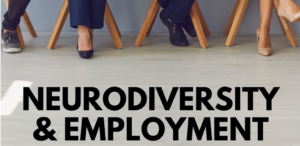The unemployment rate for autistic individuals remains significantly higher than for neurotypical individuals. This disparity is not due to a lack of skills or capabilities but rather stems from systemic challenges, misunderstandings, and a lack of awareness. However, the landscape is evolving, and with the right approach, autistic individuals can thrive in the workforce, bringing unique strengths and perspectives to their roles.
Challenges in the Workplace
Autistic individuals often face specific challenges in traditional work environments:
- Social Interaction: Difficulties with social cues, communication styles, and unspoken workplace norms can lead to misunderstandings and misinterpretations.
- Sensory Sensitivities: Overstimulating environments with bright lights, loud noises, or strong smells can be overwhelming and distracting, hindering focus and productivity.
- Rigid Thinking: Some autistic individuals prefer structured routines and may struggle with unexpected changes or flexible schedules.
- Interview Processes: Traditional interview formats, which heavily rely on social skills and self-promotion, may not accurately reflect an autistic individual’s qualifications and potential.
Strengths and Unique Perspectives
While challenges exist, autistic individuals also bring valuable strengths to the workplace:
- Attention to Detail: A meticulous eye for detail and a focus on accuracy can be invaluable in tasks that require precision and thoroughness.
- Pattern Recognition: Strong pattern recognition skills can be leveraged in data analysis, problem-solving, and identifying trends.
- Logical Thinking: Many autistic individuals excel in logical reasoning and systematic approaches to tasks, making them adept at technical roles and problem-solving.
- Focused Expertise: Intense interests and hyperfocus can lead to deep expertise in specific areas, making them valuable contributors in specialized fields.
Strategies for Success
To foster a more inclusive and supportive work environment for autistic individuals, several strategies can be implemented:
- Neurodiversity Training: Educating employers and colleagues about autism, neurodiversity, and different communication styles can promote understanding and collaboration.
- Accommodations: Providing accommodations such as quiet workspaces, flexible schedules, or clear and concise instructions can address sensory sensitivities and reduce anxiety.
- Alternative Interview Formats: Exploring alternative interview formats, such as work samples, project-based assessments, or structured interviews, can provide a more accurate representation of an individual’s skills and abilities.
- Mentorship Programs: Pairing autistic employees with mentors who understand their unique needs can provide guidance, support, and advocacy in the workplace.
- Employee Resource Groups: Creating employee resource groups for neurodivergent individuals can foster a sense of community, belonging, and support within the organization.
The Path Forward
The conversation around autism and employment is shifting towards recognizing and valuing neurodiversity, but more evolution is needed. By embracing different ways of thinking and working, organizations can tap into a wider pool of talent, innovation, and creativity. With the right support, accommodations, and understanding, autistic individuals can thrive in their careers, contributing their unique strengths to a more inclusive and diverse workforce.
It is important to remember that every autistic individual is unique, with their own set of strengths, challenges, and preferences. By fostering a culture of acceptance, understanding, and inclusivity, we can create workplaces where everyone feels valued, respected, and empowered to succeed.
On Thursday, July 18th at 12:00 pm WAA will be hosting a Lunch & Learn around neurodiversity & employment. We are thrilled to have Dr. Abbey George and Miguel Smith, MSW, both have experience in working with people with disabilities and employment. Please make sure to sign up!


